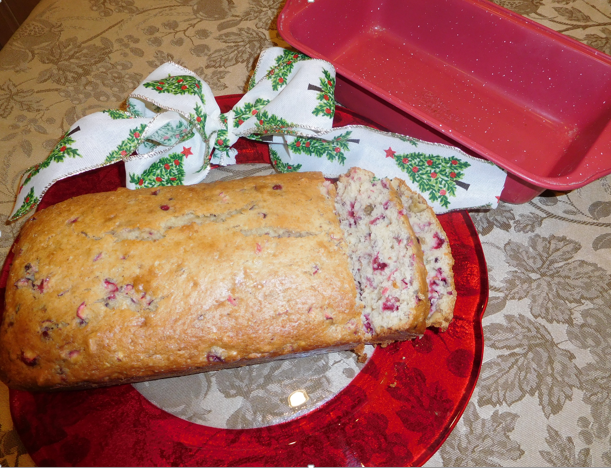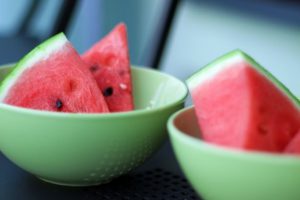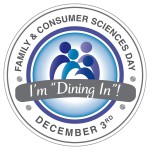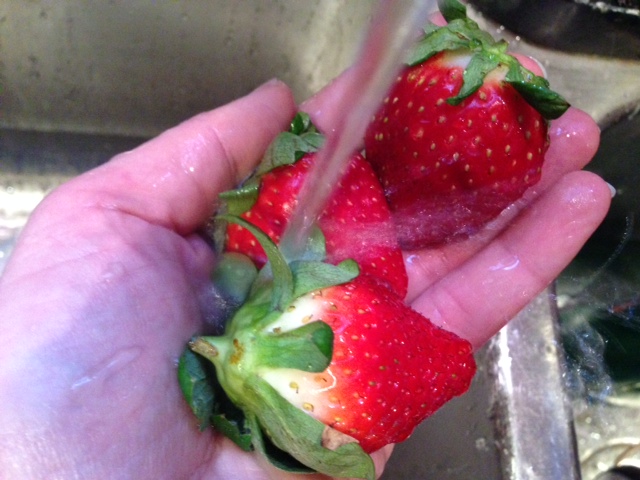by Pam Allen | Nov 25, 2016
 It is that time of year when we think about giving special gifts to the people in our lives that mean the most to us. Your list might include teachers, neighbors, friends and co-workers. Gifts don’t have to be expensive, it is the thought behind the gesture that means the most to your friends and family. Whoever is on your list this year, think about using your kitchen as grand central for gift making. Gifts of food are heart felt and send a message that you spent time making something special that looks good and tastes yummy. These gifts say thank you in a thoughtful way. Don’t forget to include your kids in the process of cooking and assembling gifts to teach them something about budgeting and enjoying the simple pleasure of gift giving.
It is that time of year when we think about giving special gifts to the people in our lives that mean the most to us. Your list might include teachers, neighbors, friends and co-workers. Gifts don’t have to be expensive, it is the thought behind the gesture that means the most to your friends and family. Whoever is on your list this year, think about using your kitchen as grand central for gift making. Gifts of food are heart felt and send a message that you spent time making something special that looks good and tastes yummy. These gifts say thank you in a thoughtful way. Don’t forget to include your kids in the process of cooking and assembling gifts to teach them something about budgeting and enjoying the simple pleasure of gift giving.
The way the gift is presented can be just as important as the food itself. Try to pair up containers with the food gift that will be used after the food is gone. This can be a gift that keeps on giving. Examples are a decorative plate filled with cookies, pie plate filled with your favorite pie or a trifle bowl filled with goodies. You get the idea. Another thought is to put together items that say “sit and take a break” like a loaf of quick bread paired with a pound of coffee, homemade salsa with chips and a favorite beverage. The main goal is to show that you put thought in the gift and spent time preparing the presentation.
With everyone watching their budgets this year, plan ahead to get the creative juices working by purchasing ingredients on sale and found locally. Local products in December include pecans, sweet potatoes, honey, peanuts, persimmons, satsumas and jams and jellies sold at local farmers markets. So get going and unleash your creativity, and give a few gifts from your kitchen and your heart. Have fun making these gifts, and remember to enjoy the process.
One of my favorite festive cookie is the Chocolate Crinkle. The crackle on top with the chocolate and white sugar says it is holiday time. These cookies make a good food gift as they stay firm and will last up to a week. They also freeze well if you need to make ahead of time. Package the gift by placing on a nice festive plate and wrap with clear wrap and decorate with ribbon.
Chocolate Crinkle Cookie
½ cup of shortening
1 2/3 cup sugar
2 tsp vanilla
2 eggs
Two 1 ounce squares of unsweetened chocolate (melted)
2 cups sifted all-purpose flour
2 tsp baking powder
½ tsp salt
1/3 cup of milk
½ cup chopped walnuts or pecans (optional)
Cream together the shortening, sugar and vanilla. Beat in the two eggs then add the melted chocolate. In another bowl, sift together the flour, baking powder and salt. Add flour mixture slowly to creamed mixture alternating with the milk until thoroughly blended. Stir in walnuts. Chill for 3 hours. Form in 1 – inch balls and roll in confectioners’ sugar. Place on greased cookie sheet 2 to 3 inches apart. Bake in moderate oven at 350 degrees for 15 minutes. Cool slightly then remove from pan. Makes 48.
They are now ready to put in a container and give to friends. This cookie freezes well.
Prepare this nut bread then decorate with wrapping and ribbon. You might include the loaf pan as part of the gift. Include a brick of cream cheese along with a decorative butter knife for a complete package.
Cranberry Nut Bread
Ingredients
2 cups all-purpose flour
1 cup sugar
1 1/2 teaspoons baking powder
¾ teaspoon salt
1/2 teaspoon baking soda
3/4 cup orange juice
1 tablespoon grated orange peel
2 tablespoons shortening
1 egg, well beaten
1 tsp vanilla flavoring
1 1/2 cups Fresh Cranberries, coarsely chopped
1/2 cup chopped nuts (walnuts or pecans)
Directions
Preheat oven to 350 degrees. Grease a 9 x 5-inch loaf pan. Mix together flour, sugar, baking powder, salt and baking soda in a medium mixing bowl. Stir in orange juice, orange peel, shortening and egg and vanilla. Mix until well blended. Stir in cranberries and nuts. Spread evenly in loaf pan. Bake for 55 minutes or until a toothpick inserted in the center comes out clean. Cool on a rack for 15 minutes. Remove from pan; cool completely. Makes 1 loaf (16 slices). Bake loaf in decorative pan as part of the gift. Make sure you cool after cooking then replace in pan and wrap as part of the gift.
The Real Sweet Potato Pie
Use local sweet potatoes to promote locally grown produce. After baking, cool then give as a gift in a nice pie plate. Wrap, refrigerate with instructions on reheating for serving. For added effect, bundle with whipped cream and pie knife.
Pre Preparation
Prepare your sweet potatoes for the pie mix. Select 6 – 7 large sweet potatoes and cut in half or quarters. Boil potatoes slowly for about 30 minutes. Let cool. Peel potatoes after they cool. The peel should come off very easy. Measure six cups of sweet potato in a mixing bowl. Use a stand mixer to beat the sweet potatoes and do not scrape off any mixture from beaters. This will contain the stringy part and you do not want it in your pie. Discard the strings.
Ingredients
6 cups cooked mashed sweet potatoes
1 cup evaporated milk
½ cup butter
2 tsp vanilla flavoring
2 tsp nutmeg
1 tsp butter flavoring
4 eggs
1 cup sugar
Mix all ingredients in a stand mixer until well blended. The mixture should be smooth and free of lumps. The mixture will keep in the refrigerator up to a week and may be frozen for future use. Be sure to label with date and amount before placing in freezer.
For the Pie
Place mixture in unbaked pie shell and smooth to the edges. You will need about 2 ½ cups for each 9 inch deep dish pie shell. Mini tart shells may also be used for individual pies. This recipe makes about 3 pies or 12 individual mini pie tarts. Cook at 350 degrees until puffed and browned slightly on top. About 40 minutes.
Visit your local farmers market to purchase local nuts, honey, produce and jams and jellies. Be sure to look for locally grown and support our area growers. For additional information about local produce visit: http://wfrec.ifas.ufl.edu/panhandle-produce-pointers/
by Amy Mullins, PhD, RDN | May 30, 2016
It’s hard to believe that summer is almost here and the kids are out of school! Often times, when kids (and parents too) get away from their normal routine, poor eating and snacking habits creep in. It’s important for kids (and parents) to have a variety of go-to snacks that are tasty, healthy, and easy to prepare!
Put some thought into which snacks make the best choices, and get input from the kids. Children and teenagers are more likely to eat what you buy (and be excited about it!), if they help in the process.
 1.) PLAN: Sit down together and make a list of snack-type foods they might like, and can easily prepare themselves.
1.) PLAN: Sit down together and make a list of snack-type foods they might like, and can easily prepare themselves.
2.) LIST: Make a list of the foods you’ll need to pick up at the grocery store.
3.) SHOP: Take the kids with you shopping… let them help fill the cart with the foods you’ve agreed on.
4.) PREPARE: Allow the kids to help wash, cut, portion, and prepare snacks. This will give them more confidence in the kitchen… now and as a future adult.
Stumped on where to get started? Your best bet is to stay away from processed, pre-packaged snack foods, and sugary drinks. These are typically high in unhealthy fats, oils, and sugar, and lack the vitamins, minerals, and fiber fresh and frozen whole foods have.
Try these super easy and healthy snacks:
- Layer vanilla yogurt and mandarin oranges or blueberries in a tall glass. Top with a sprinkle of granola to make a “parfait”.
- Put cubes of low-fat cheese and grapes on pretzel sticks to make “snack-kabobs”.
- Top a banana with low-fat vanilla and strawberry frozen yogurt and sprinkle with your favorite whole-grain cereal for a healthy “banana-split”.
- Use whole grain (flour or corn) tortillas and top with tomato sauce, cut veggies and shredded cheese. Eat it flat (like a pizza) or roll it up (like a wrap).
Keep your children, and yourself, on track this summer by remembering these main messages from ChooseMyPlate and The Dietary Guidelines:
- Make half your plate fruits and vegetables.
- Focus on whole fruits.
- Vary your veggies.
- Make half your grains whole grains.
- Move to low-fat and fat-free milk or yogurt.
- Vary your protein routine.
- Drink and eat less sodium, saturated fat, and added sugars.
Everything you eat and drink over time matters. The right mix can help you be healthier now and in the future. Start with small changes to make healthier choices you can enjoy. Find your healthy eating style and maintain it for a lifetime.
Find more great ideas with additional resources from MyPlate Snack Tips for Parents
and The Academy of Nutrition and Dietetics 25 Healthy Snacks for Kids.
by Angela Hinkle | Oct 30, 2015

Family Meal
When I was a kid a million years ago, my family had dinners together. Most meal times were good. I was where I was supposed to be and felt safe, important, and loved. Other meals were not so great. I specifically remember being forced to eat at least one lima bean for which much drama was executed on my part. These days, I love being able to eat dinner with my daughter. When we eat together, we’re happier and healthier, especially if we have fun things to laugh about while we eat.

FCS Dining In Day December 3rd
The payoff comes in benefits for both of us. A variety of research has shown that when we eat meals together as a family we feel closer and we eat more nutritiously. When families have meals together, it gives them the chance to catch up on what is happening in their day. There is also the chance to learn table manners, and some basic cooking skills.
For a quality meal time experience, let every member of the family help make some part of the meal – which can help develop food preparation skills – or try taking turns cooking and cleaning. Make new rituals and share traditions so everyone knows they belong to a special group. Teach youth about their heritage by serving and talking about a favorite family recipe. Offer healthy food choices (they’ll be more willing to choose these foods as they grow). And be sure to have light, easy conversations. Save difficult conversations for another time.
To help you kick start your family meal together this year, commit to “Dining In” on Family & Consumer Sciences Day, December 3, 2015. http://www.aafcs.org/FCSday/. Then add on another family meal, then another, until quality meal times become a healthy part of your family.

by Amy Mullins, PhD, RDN | Aug 24, 2015
 Are your kids famished when they get home from school? Kids often hit the kitchen right when they get home and begin the search for something to eat. After being at school all day, it’s inevitable they will bring a host of germs into the house (and into the kitchen). These germs, or microorganisms, can contaminate your kitchen and make your child sick if they are not kept in check.
Are your kids famished when they get home from school? Kids often hit the kitchen right when they get home and begin the search for something to eat. After being at school all day, it’s inevitable they will bring a host of germs into the house (and into the kitchen). These germs, or microorganisms, can contaminate your kitchen and make your child sick if they are not kept in check.
How can kids prepare after-school snacks in the safest way?
Establishing good habits and putting good practices in place can help keep your kids from getting a foodborne illness. The USDA recommends the following:
- Keep all items such as books, backpacks, and sporting equipment on the floor and off of kitchen counters and tables.
- Wash hands first when coming home from school, and again before making and eating a snack. Hands carry lots of germs and can easily contaminate everything they come in contact with.
- Wash fruits and vegetables under running water before eating them.
- Read more about “Food Safety After School”
What are some good after-school snacks?
Choosing easy and healthy snacks for kids can be a real challenge, especially when dealing with picky eaters. Typically, kids feel more independent when they have options and can control what they eat. Parents can set their children up for success by having a variety of healthy snack choices that are easily accessible. Find some great snacking ideas here. Keith Williams, PhD, director of the feeding clinic at the Penn State Hershey Children’s Hospital, recommends having plenty of fruits and vegetables already washed, cut up, and within easy reach of children. Keep the “sometimes” foods out of reach so you can control when your child eats them. “The goal is to make it easier to obtain the healthy snacks you want your child to eat and more difficult to obtain the foods you don’t want him to eat,” says Williams. Read more about “Breaking Your Gradeschooler’s Unhealthy Food Habit” here.
Establishing healthy habits from an early age can transition children into healthier adults. Learn more about making smart choices by visiting http://www.choosemyplate.gov/kids/
by Ginny Hinton | Jul 25, 2015

Young boy drinking a glass of milk
It may be hard to believe, but summer vacation is drawing to a close and school is right around the corner. It’s time to plan for lots of things like new classrooms and teachers, unexpected supply needs, extracurricular activity requests – and hungry kids arriving home from school.
Although it’s easy to succumb to the appeal of ready-made, processed snacks, it can be just as easy and inexpensive to offer healthy but delicious options in single-serve sizes. Following are some quick and simple suggestions:
- Store sliced veggies in the refrigerator and serve with hummus or low-fat ranch dressing.
- Mix dried fruit, unsalted nuts and popcorn in a snack-size bag for a healthful trail mix.
- Wrap sliced, low-sodium deli meats like turkey or ham around an apple wedge.
- Store hard-boiled eggs in the refrigerator for kids to grab any time.
- Purchase fresh, frozen, dried or canned fruits for easy “grab-and-go” options.
- Offer a single serving of individually wrapped string cheese or low-fat yogurt.
- Add club soda to a ½ cup of 100% fruit juice for a tasty alternative to soda.
With just a bit of advanced planning, it’s a snap to halt the snack stampede and wind up with satisfied and healthier school-age kids!
Please click here to answer a few questions to help us better serve you.
 It is that time of year when we think about giving special gifts to the people in our lives that mean the most to us. Your list might include teachers, neighbors, friends and co-workers. Gifts don’t have to be expensive, it is the thought behind the gesture that means the most to your friends and family. Whoever is on your list this year, think about using your kitchen as grand central for gift making. Gifts of food are heart felt and send a message that you spent time making something special that looks good and tastes yummy. These gifts say thank you in a thoughtful way. Don’t forget to include your kids in the process of cooking and assembling gifts to teach them something about budgeting and enjoying the simple pleasure of gift giving.
It is that time of year when we think about giving special gifts to the people in our lives that mean the most to us. Your list might include teachers, neighbors, friends and co-workers. Gifts don’t have to be expensive, it is the thought behind the gesture that means the most to your friends and family. Whoever is on your list this year, think about using your kitchen as grand central for gift making. Gifts of food are heart felt and send a message that you spent time making something special that looks good and tastes yummy. These gifts say thank you in a thoughtful way. Don’t forget to include your kids in the process of cooking and assembling gifts to teach them something about budgeting and enjoying the simple pleasure of gift giving.




 Are your kids famished when they get home from school? Kids often hit the kitchen right when they get home and begin the search for something to eat. After being at school all day, it’s inevitable they will bring a host of germs into the house (and into the kitchen). These germs, or microorganisms, can contaminate your kitchen and make your child sick if they are not kept in check.
Are your kids famished when they get home from school? Kids often hit the kitchen right when they get home and begin the search for something to eat. After being at school all day, it’s inevitable they will bring a host of germs into the house (and into the kitchen). These germs, or microorganisms, can contaminate your kitchen and make your child sick if they are not kept in check.